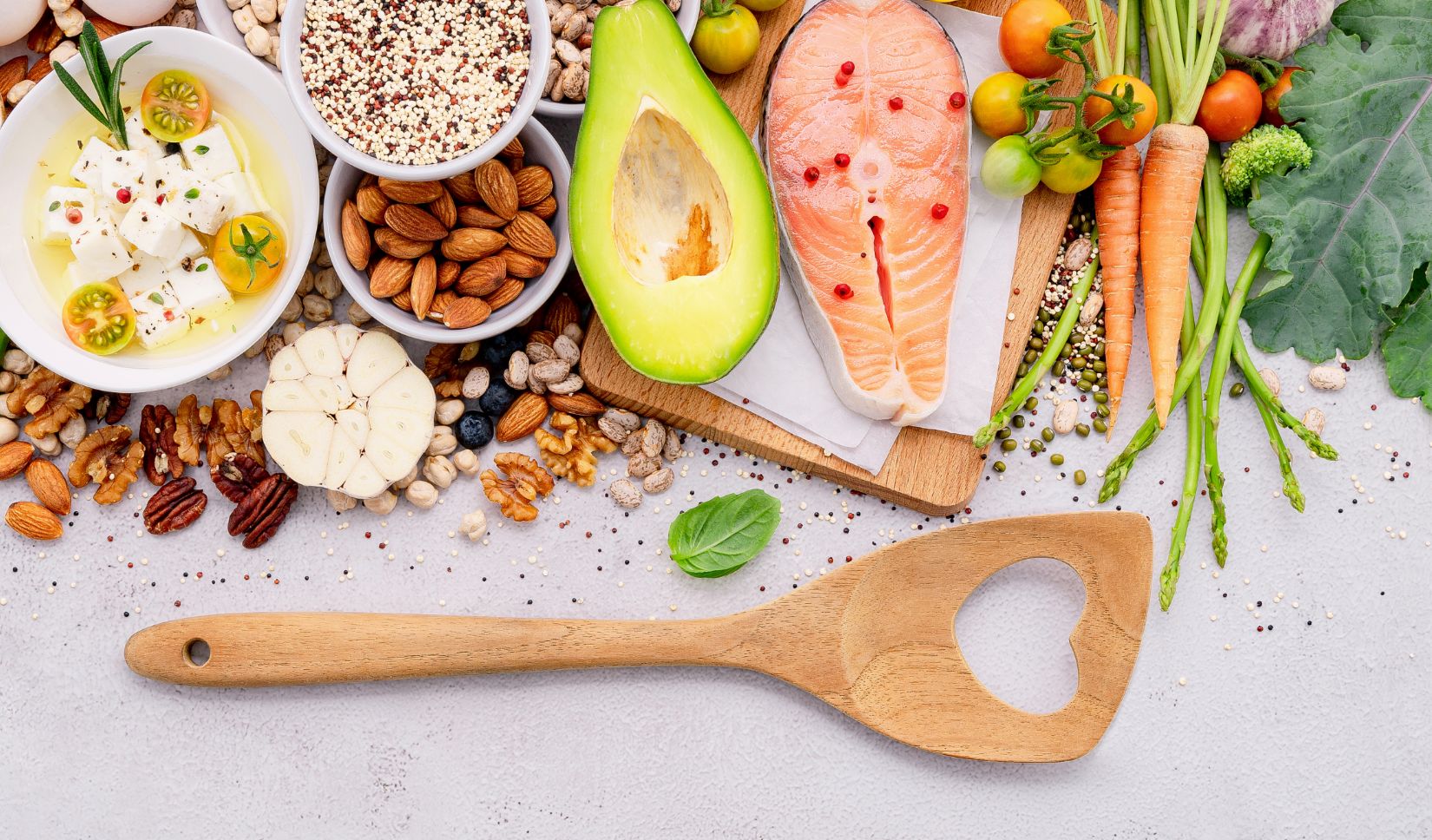When making changes to improve your heart health, you might have many questions, like how to improve heart health, what vitamins are good for heart health, and how to check heart health.
Some of those questions have easy answers. To check your heart health, make an appointment with your primary care provider to have them run the appropriate tests. Changing what you eat can make a big difference to improve your heart health.
10 Actionable Heart-healthy Habits for Seniors
Here is a set of strategies you can incorporate into your daily routine to improve your heart health over time. Adopting a heart-healthy meal plan is an investment in your prolonged health and quality of life.
Improve Heart Health with Clean Cuisine
“Eating clean” refers to consuming food items as close to their natural state as possible. For example, eating an orange is a cleaner alternative to drinking a glass of orange juice. Similarly, eating a slice of turkey breast is a cleaner alternative to a commercially produced turkey meatball.
The best foods for heart health are clean foods, like whole fruits and vegetables, and unprocessed proteins like eggs, beans, and skinless chicken breasts.
Learn What Vitamins are Good for Heart Health
Understanding which vitamins are good for heart health and incorporating them into heart-healthy meals and snacks is an effective skill. Vitamins that promote heart health include:
- Vitamin D
- Vitamin E
- Folate
- Omega-3
- Fiber
- Melatonin
- Vitamin B (all varieties)
- Calcium
- Potassium
We realize that’s a long list! Instead of trying to fit every vitamin into each meal, eat various foods to ensure you consume an adequate nutrient level. A good way to do this is to eat a rainbow of foods, like a banana and yogurt for breakfast, followed by a green salad loaded with different-colored vegetables for lunch.
Swap in Whole Grains for Heart-healthy Meals
When choosing bread and pasta, opt for whole-grain versions. This will increase your fiber intake and regulate your blood pressure, contributing to good heart health. Other great choices in heart-healthy recipes include grains like farro, oatmeal, and quinoa.
Choose Healthy Fats
One of the most heart-healthy habits for seniors to adopt is choosing healthy fats over unhealthy fats. Fat is a necessary nutrient, so going completely fat-free does not improve heart health.
Healthy fats are derived from vegetables, nuts, seeds, and fish. A few examples of fats that fit into a heart-healthy meal plan include:
- Avocado oil
- Olive oil
- Omega-3 fatty acid
- Peanut butter
Limit Saturated and Trans Fats
To follow up the previous tip, reduce the amount of saturated and trans fats you consume. Saturated fats are found in butter, cheese, red meat, and fried foods. Trans fats are typically found in fried and processed foods, including baked goods. If you’re wondering how to improve heart health, this one is important because both saturated and trans fats increase blood pressure, which can lead to heart disease.
Eat More Lean Proteins in Heart-healthy Meals
Instead of red meats and processed protein sources, opt for lean proteins like skinless chicken breasts, eggs, tofu, beans, and other legumes like lentils and chickpeas. Consuming an adequate amount of protein helps you feel full, so don’t skip protein servings to make more heart-healthy meals. Instead, choose low-fat options to create well-rounded, satisfying meals.
Add More Fish to your Heart-healthy Meal Plan
Fish are another great source of protein in a heart-healthy meal plan. Specifically, the following species are excellent choices:
- Salmon
- Mackerel
- Tuna
- Anchovies
These fish species make heart-healthy meals because they contain omega-3 fatty acids, which are heart-healthy fats.
Cut Down on Sodium in Heart-healthy Snacks
Consuming high levels of sodium is correlated with increased blood pressure, which can lead to heart attacks and stroke. Regarding heart-healthy snacks, it’s necessary to cut back on salt. Snack options with little to no sodium include fruits, vegetables, hummus, and pretzels marked “low sodium.”
You can reduce your sodium intake at mealtimes, too. Sodium tends to be most present in frozen, packaged, and processed foods, so choosing clean and whole foods is one of the best heart-healthy habits for seniors. This includes bottled sauces and dressings—for a tasty, zesty salad, go for a homemade vinaigrette.
Drink More Water and Choose Heart-healthy Desserts
Sweet beverages like soda and commercially produced iced teas often contain high levels of sugar and sodium, both of which can increase blood pressure. For overall improved heart health, choose water as your primary beverage.
Adopting a heart-healthy meal plan doesn’t mean you have to skip dessert, either. You can enjoy many heart-healthy desserts, like sweet potato cookies, Greek yogurt and fruit parfaits, and banana bran muffins. Search online to find heart-healthy recipes that get your sweet tooth salivating.
Limit your Alcohol Intake
The last of our heart-healthy habits for seniors is reducing the amount of alcohol you consume. Even one alcoholic beverage each day can increase your blood pressure and stroke risk, so opt for sugar-free mocktails and save the hard stuff for special occasions.
Interested in more resources about how to improve heart health? Read our blog posts about heart-healthy meals and adopting a low-sodium lifestyle.



